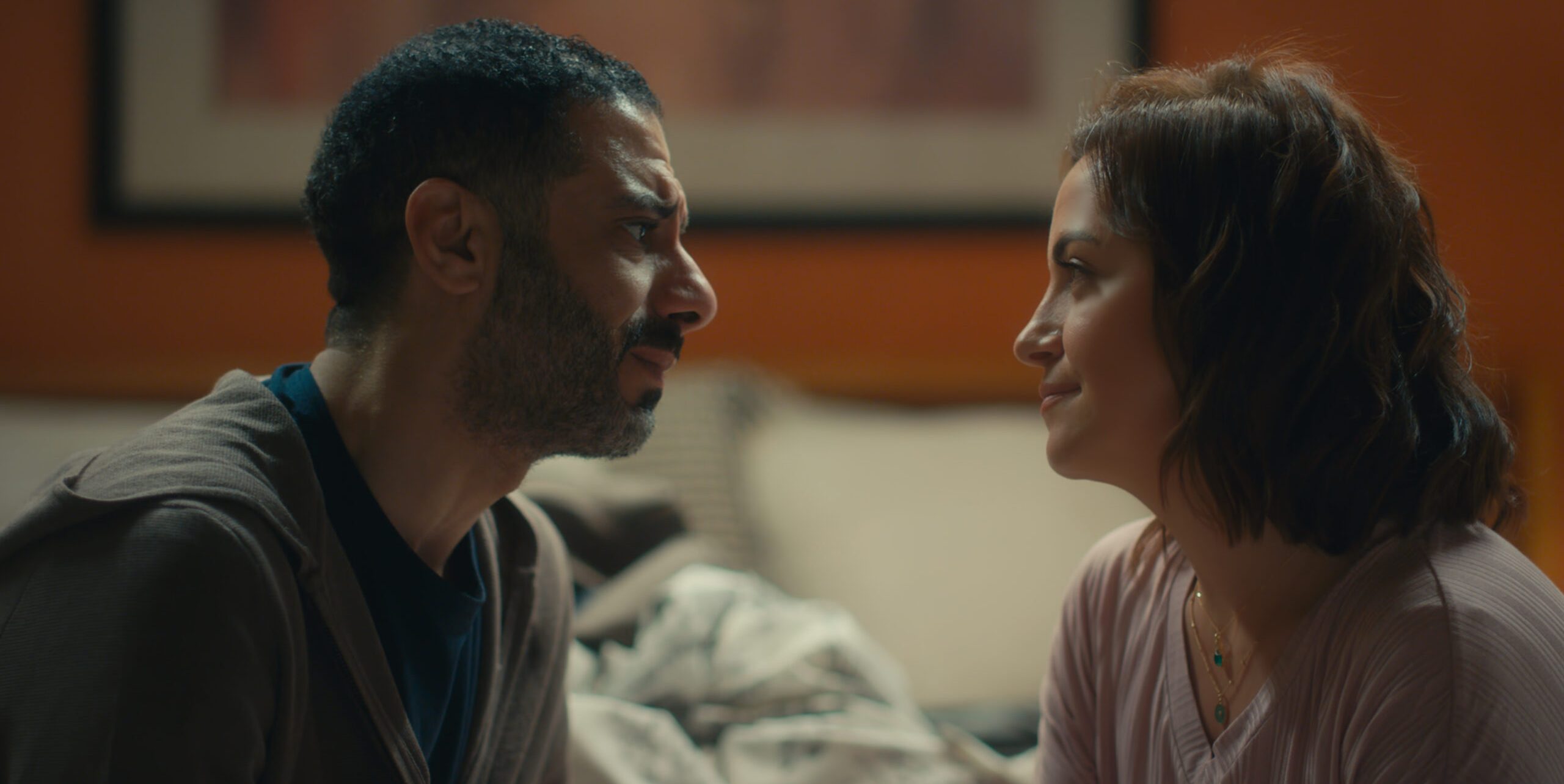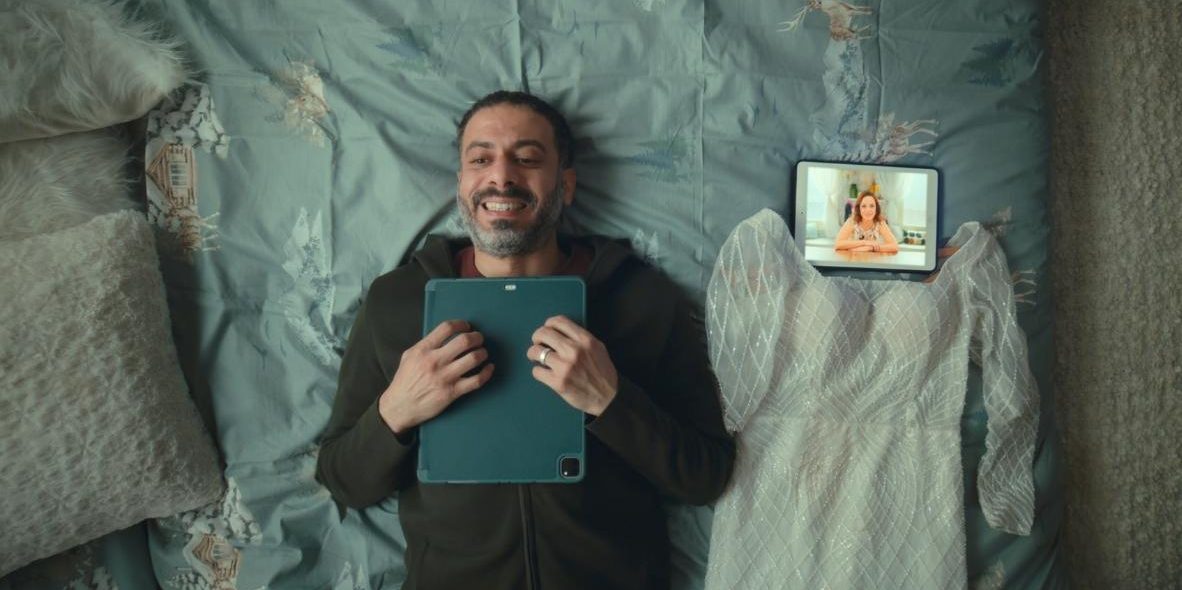Netflix’s ‘Catalog’ or ‘Kataluj’ is an Egyptian family drama series that centers on a recently widowed father as he explores the complexities of raising his two children with the help of recorded instructional videos by his late wife before her untimely death. The narrative is rooted in the complexities of modern Arab family life, especially in the context of paternity and masculinity in the absence of a mother in a family. It offers viewers a tale of longing, identity, love, and haunting memories. The Ayman Wattar creation delves into themes of mourning and the idea of a family in the era of technological dominance. The storyline presents a scenario where the protagonist, Youssef, a single father in a complex society, must go beyond his ideas of parenthood and fill the void of a maternal figure in the lives of his children.
Catalog Takes a Deep Dive into the Intricacies of Fatherhood
The emotional core of the series is in its exploration of the bonding between Youssef and his children Karima and Mansour. Despite being a fictional tale written by the creator Ayman Wattar, the series reflects reality in myriad ways through its authentic portrayal of the family dynamics in an Arab family, and also the challenges faced by a loving father who only wants his children to be safe following the death of their mother. In traditional Arab culture, and specifically within Egypt, single fatherhood isn’t a common occurrence, as conservative values still play a major role, centered around the mother taking care of the kids.

In the show, Youssef finds it too heavy a responsibility to look after kids, because his social role doesn’t allow him to pursue so-called maternal instincts or duties. This is a dark reflection on the reality of society, where many fathers aren’t prepared to engage in the care of their children by themselves, because of the gender role that’s been imposed by society. It is also tough for children to continue with their daily activities without the care of a mother, especially in societies where men form the bulk of the workforce, limiting the majority of women to the household most of the time.
Mohamed Farrag, who portrays Youssef in the series, embraced a paternal role both on and off-screen, adding realism and depth to his character. He almost acted as a father figure to the child actors Retall Abdulaziz and Ali El Beialy, who play Karima and Mansour in the show. In an interview with The National, Farrag quoted, “If you have kids, it’s a big problem if you don’t know anything about them. Providing for them isn’t enough, you have to be involved.“
He added that the series explores the theme of parental love, emphasizing the importance of active involvement in children’s daily lives and problems to foster their affection. In the same interview, Ali El Beialy stated that his primary focus was on understanding his character and identifying their shared traits. He remarked, “Mansour loves his mom, and I really love my mom, so I connected with him on this point.” He added that he got closer and closer to his character after every scene.
The Narrative Explores How Digital Tools Can Help Navigate Grief
The protagonist’s life takes an unexpected turn when he stumbles upon the “catalog,” a digital repository of videos made by Amina. This extensive collection acts as a proper parenting manual, providing practical guidance on everything from handling his children’s feelings to simple tasks related to the care of the kids. Akin to the story of the character Tony in the British show ‘After Life,’ who is heavily reliant on the videos of his dead wife Lisa as her memories help him get through his grief, Youssef, too, goes through Amina’s videos to inspire him. Though the two shows are different in terms of the plot, the similarities connect them on a spiritual level.

Each video acts as a daily guide that helps Youssef with his sorrow while simultaneously re-establishing a bond with his children. Though technology can be dangerous, especially if you depend too much on it, in the case of the show, it becomes a point of happiness for Youssef, who uses it to become a better man. Without technology, it is probably hard to imagine how humanity’s concept of memory will be affected in the real world. This element of memory and technology brings the series closer to social reality and connects it to the experiences of many individuals who have lost their loved ones.
In the loud and often chaotic social media generation, memory and perspective have been overshadowed by digital entities capable of altering one’s thoughts. It can be said that technology itself is a character in the series, which ensures that Amina stays with the family despite not being physically present. However, the show also makes it clear that digital intervention can never compensate for real loss, and focuses on how the characters evolve through grief and grow into better human beings. This emotional core connects the show to the lived experiences of people in the real world.
Read More: Is Delirium a True Story? Is the Netflix Show Based on Real Life?


